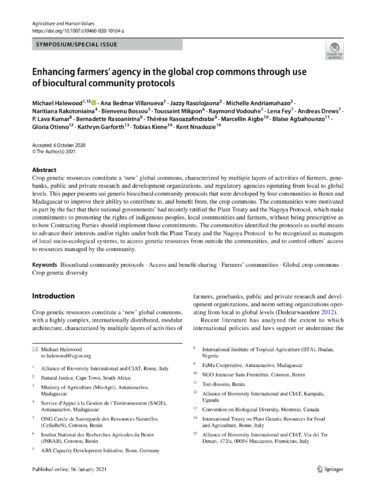Enhancing farmers’ agency in the global crop commons through use of biocultural community protocols
Crop genetic resources constitute a ‘new’ global commons, characterized by multiple layers of activities of farmers, genebanks, public and private research and development organizations, and regulatory agencies operating from local to global levels. This paper presents sui generis biocultural community protocols that were developed by four communities in Benin and Madagascar to improve their ability to contribute to, and benefit from, the crop commons. The communities were motivated in part by the fact that their national governments’ had recently ratified the Plant Treaty and the Nagoya Protocol, which make commitments to promoting the rights of indigenous peoples, local communities and farmers, without being prescriptive as to how Contracting Parties should implement those commitments. The communities identified the protocols as useful means to advance their interests and/or rights under both the Plant Treaty and the Nagoya Protocol to be recognized as managers of local socio-ecological systems, to access genetic resources from outside the communities, and to control others’ access to resources managed by the community.

